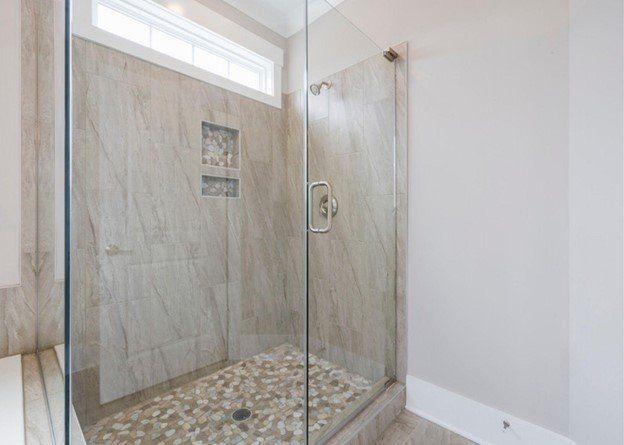Drywallers Kitchener Waterloo Installation and Repair
What Type of Drywall Should You Use in a Shower?
Drywall is a versatile material that can be used in a variety of situations. Not all drywall types are suitable for all types of installations, however. In locations that will be exposed to high levels of moisture on a regular basis, special care must be taken both in selecting and installing drywall.
Regular drywall should never be used in a high moisture area like a shower. Even if a water barrier is used and the tile and grout are expertly installed, the grout will eventually shrink or deteriorate enough to allow some water to pass through. Any water that reaches the drywall can cause it to rot, and rotting drywall can crumble and cause the entire wall to come crashing down, tile and all.
Cement board is the best type of drywall to use in a shower as it is the most resistant to water. It is also much heavier than regular drywall, so a few modifications must be made to the installation process. Concrete screws should be used in place of drywall screws, and a jigsaw will be needed to cut pieces to size. The extra weight may also require additional man power to lift and hold the pieces up while they are secured.
While it is not as water resistant as cement board, mold and moisture resistant drywall (often abbreviated as MMR) can also be used. It is less expensive than cement board and can be installed exactly like regular drywall. There is a huge difference in the water resistances of the two materials, however. If MMR is used in a shower to keep a project within budget, a waterproofing product must be applied liberally and meticulously to prevent damage.
Whatever type of drywall you choose, you should always apply a waterproof membrane to the drywall. One coat should be applied before the drywall is hung, and a second coat should be added after the drywall is installed and the seams have been taped. Installing a water barrier behind the drywall is also highly recommended - in the rare occurrence that water does seep through, this additional protection will protect the studs and other structural components of your wall from mold and rot.
Showers are very wet environments and must therefore be built with care to prevent mold growth and to keep the walls structurally sound for years to come. We strongly recommend going to the extra trouble and expense to use cement board in any area that will come into direct contact with water on a regular basis. Other products may work (for a while at least), but why risk having to redo your shower again in a few years because a little bit of water soaked through and rotted your drywall? Cement board, combined with a waterproof membrane, will keep all of the moisture where it belongs - in the shower and out of the walls.
Still have questions?
Our team of experts are here to help with all your drywall needs!
Request a quote
Contact Us

